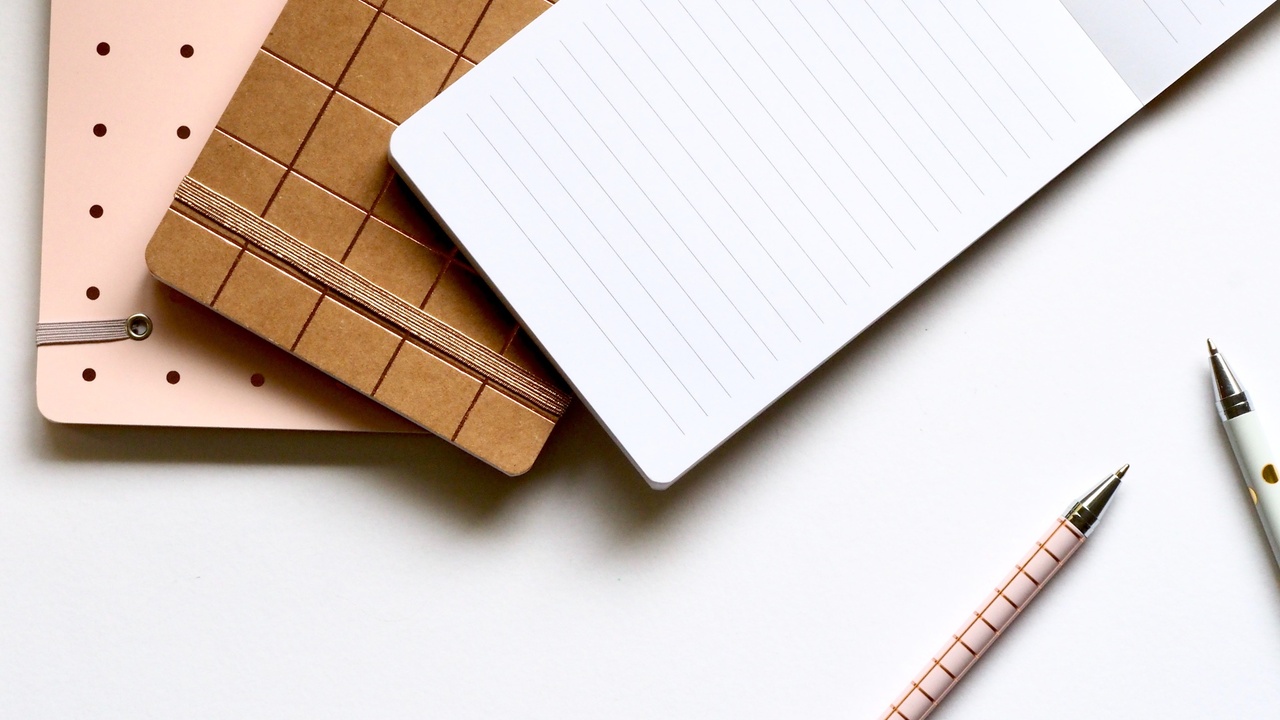My Secret Method for Staying Organized in Your Business
Mar 08, 2021
How good are you at staying organized in your business?
Just because someone has good entrepreneurial skills doesn’t mean they’re great at keeping organized. I used to get really frustrated working on group projects when I was in college because some people just seemed like they couldn’t get anything done on time, whether their role was designer, writer, or even team lead.
I don’t mean to call anyone out for being disorganized — some people just function better with a little bit of extra freedom from constraints. However, I DO want to discourage the use of “creativity” as an excuse for laziness which is something I see again and again in the creative entrepreneur space.
In my opinion, creativity and organization are both skills that must be exercised and developed frequently in order to achieve maximum success as a creative business owner. They’re two sides to the same coin, and since I’ve talked a lot about creativity in your business lately, today I thought I’d share some of my no-nonsense advice for getting (and staying!) organized with your creative business.
Step 1: Set Firm Deadlines
Many creatives don’t realize how long something will take. I’ve definitely struggled with this in the past, so I developed a simple system for myself to make sure all my big projects get done. I start with a calendar (weekly or monthly, depending on the task) and I schedule everything out backwards.
For example, my schedule might look like this:
- Feb 20 — Turn in final brochure
- Feb 18 — Pick up printed brochures from Alphagraphics
- Feb 12 — Submit brochure design to Alphagraphics
- Feb 10 — Submit brochure to editor for proofreading, etc.
- Feb 9 — Make final changes to brochure design and match colors
- Feb 4 — Add photos and copy to brochure
- Feb 1 — Make brochure design outline/rough draft
You get the idea. This system helps me work faster, avoid procrastination, and keeps me on track because I have more time to adjust the plan if something takes longer than I originally anticipated.
Step 2: Keep Track of Your Time
When I do contract or freelance work, I keep track of my time very carefully. I like to do this with all my projects so I can manage my time more effectively.
Keeping track of my time helps me a) work faster (because I don't want to admit to the client it took me an entire hour making a rough draft), and b) understand how long something actually takes so I can anticipate for future projects. I used to underestimate my time for clients because I didn't really have a good idea of what went into certain tasks.
Keeping track of my time also allows me to say with confidence, "I can have that done in __ hours" instead of making a wild guess and then pushing myself too hard to make sure it happens on a deadline that was a little too tight.
Step 3: Be Accountable
If you're the creative person on a project, make a small goal for yourself and then tell someone on your team so they can force you to act on it. Just say, "I'm going to make an outline for the poster in black and white in the next 30 minutes and bring it to you for proofreading." You'll be surprised at how fast you can work when you have someone really counting on you! It makes the task more connected with your pride — no one likes to be wrong or look bad, so you’re even more motivated to stay on top of the task or responsibility.
Step 4: Make Outlines
We often get excited about projects and want to dive right in without really getting organized. But I’ve found that when I take the time to make a rough draft, outline my goals for the project, and draw out my ideas on paper prior to diving in, the end result is much more streamlined and easy-to-digest. Make sure you really know what you're doing before you start, and you won't waste as much time trying to figure it out.
Step 5: Just Do it!
My sister Abby is a professional writer/editor. She says the secret to writing is to just “keep your butt in the chair.” I totally recognize the simplicity and power of this idea! Sometimes you have to force creativity by just sitting down and working it out (Read Twyla Tharp’s The Creative Habit if you’re interested in learning more about this idea).
I find that if I can set a timer for 30 minutes and work without stopping, I often accomplish more than if I sat down for several hours without any focus. Remember — it’s better to submit something ugly to your collaboration partner than nothing at all.
Not all creative projects can always be systemized, but I’ve found that if you can get organized and stay focused, you’ll work a lot faster and you won’t suffer from so much burnout. Even though there are professional positions to manage creative people (account managers, marketing coordinators, etc.) we can all be a little more responsible and do what we said we would do, when we said we would do it.
You can be both creative AND organized, and everyone (especially your group partners) will thank you for it.




